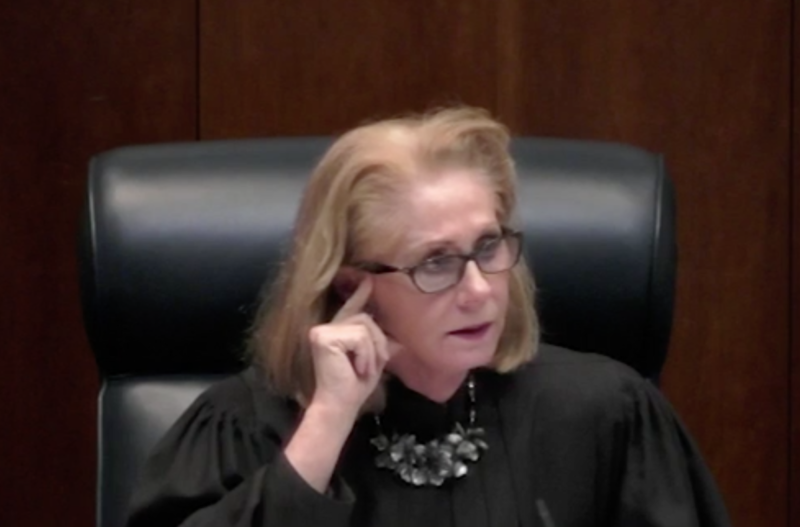In a ruling that could benefit Arbnb and B&B owners, the Texas Supreme Court issued an opinion March 13 siding with a landowner who had been sued over a spider bite.
The case originated in Gillespie County, where a man named Homer Hillis leased a cabin on his property to Henry McCall. After McCall was bitten by a brown recluse spider on the property while reaching under a sink, he sued Hills in the 216th Judicial District Court.
The trial court dismissed the case but the Fourth Court of Appeals in San Antonio reversed this decision and sent the case back to the lower court.
With Friday’s ruling, the Supreme Court found that the appellate court erred. It agreed with Hillis’ petition that “the Court of Appeals erroneously expanded the duty a landowner bears under the doctrine of ferae naturae, thus increasing the burden on landowners.”
Ferae naturae is a Latin phrase meaning ‘wild nature,’ and it refers to a legal doctrine that limits the liability of a property owner for injuries caused by wild animals.
During oral arguments, Justice Debra Lehrmann and Justice Jimmy Blacklock had queried the petitioner’s attorney over how far the ferae naturae doctrine can extend.
Blacklock suggested that a person who knows about a den of rattlesnakes in the backyard and does nothing about it should be liable.
The justices seemed to agree that the ferae naturae doctrine is not ‘absolute.’ Lehrmann, who delivered the opinion of the court, focused on the underlying facts of the case, saying that the application of the ferae naturae doctrine depends on the facts.
She outlined the following ‘pertinent’ facts:
- Hillis’s property is in Fredericksburg, in the Texas Hill Country, an area where brown recluse spiders are indigenous.
- Hillis rented a cabin on the property to McCall and used a residence on the property as a B&B, mainly for weekend rentals.
- Hillis conducted pest control in the B&B on an as-needed basis by instructing the housekeeper to set off bug bombs if she saw pests while preparing the B&B for guests.
- McCall lived in a neighboring cabin on the property that had no washer or dryer and had only a small refrigerator. Hillis permitted him to use the laundry facilities and larger refrigerator in the B&B.
- McCall also offered to “open up” the B&B for guests and others needing access, such as electricians and other maintenance workers. According to McCall, Hillis typically called him several days before guests arrived and asked him to perform various tasks.
- McCall was bitten by a brown recluse spider inside the B&B while checking under the kitchen sink for a leak.
- McCall had seen spiders on several occasions in both the cabin and the B&B. When he saw spiders in the B&B, he would notify Hillis, who passed along the information to the housekeeper who prepared the B&B for guests.
- Customer reviews of the B&B had never mentioned insects.
- Hillis had not known about the presence of the actual spider that bit McCall when it happened.
Lehrmann concluded in the opinion, “The existence of a duty is a question of law that depends on the underlying facts. Even with respect to wild animals found inside, an owner’s duty to invitees does not extend beyond warning about or making safe from unreasonably dangerous conditions about which the owner knows or has reason to know but the invitee does not.”
